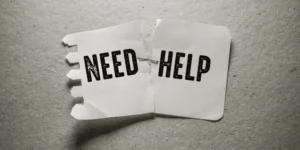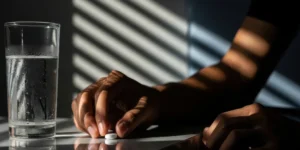Family Involvement Transforms Mental Health Journeys For All
How can active involvement of family members enhance the effectiveness of mental health treatment for individuals in South Africa? Get help from qualified counsellors.
- Medical Aid Pays. Private Health Insurance Pays
- Everybody's needs are unique
- Find the best addiction treatment program for you
Why We Heal Alone When We Shouldn’t
Recovery doesn’t happen in silence. It doesn’t happen in isolation or behind the closed doors of a therapist’s office. It happens in the quiet chaos of family dinners, in the unspoken tension between parents and children, in the places where love and hurt blur together. Yet, in South Africa, many people still see therapy as a private affair, something for the individual to fix on their own.
But mental health doesn’t work that way. Addiction, depression, anxiety, and trauma are not solitary afflictions. They spread like shockwaves through the entire household, reshaping dynamics and redefining relationships. The truth is, when one person is unwell, the whole family feels it. And family therapy is where that truth finally gets spoken out loud.
The Myth of the “Strong” Family
In South African culture, there’s an unspoken pride in holding it together. We value stoicism, “just get on with it,” “pray harder,” “don’t let the neighbours see.” The façade of strength often comes at the expense of emotional honesty. Generations have been raised to believe that talking about family problems is betrayal, not healing.
But silence has consequences. The emotional habits we inherit from our parents, denial, avoidance, guilt, become the emotional language we pass on to our children. Family therapy isn’t about assigning blame, it’s about finally breaking that cycle. Strength isn’t pretending everything is fine. It’s sitting in a room together and facing the truth that’s been ignored for years.
When One Person Gets Sick, the Whole System Feels It
Addiction or mental illness doesn’t just happen to one person, it reorganises the entire family system. Parents may swing between rescuing and resenting, siblings feel neglected or invisible, and partners carry the weight of anger and fear.
Family therapy gives everyone a mirror. It shows how each person, often unconsciously, participates in the pattern, enabling, withdrawing, or over-controlling. It’s not about blame. It’s about recognising that every family member’s behaviour makes sense in context, even when it hurts. Healing comes when the family stops seeing each other as the problem and starts seeing themselves as part of the solution.
The Hard Part, Why Families Resist Therapy
Sitting in a family therapy session can feel like emotional surgery. Nobody enjoys being dissected under the bright light of honesty. Many families resist therapy because they fear what will be revealed.
“What if I’m part of the problem?” is a terrifying question to face. Some parents fear losing authority.
Some partners fear exposure. Others genuinely don’t believe therapy can help.
In South Africa, there’s still stigma attached to mental health, therapy is often dismissed as “airing dirty laundry” or “Western nonsense.” But as therapists know, the most defensive families are often the ones carrying the deepest wounds. The process is uncomfortable, but that discomfort is what growth looks like.
What Family Therapy Actually Does
Family therapy isn’t just people sitting around and crying (though sometimes that’s part of it). It’s structured. It’s deliberate. And it’s powerful. In these sessions, families learn new ways to communicate, to talk without shouting, to listen without interrupting, to disagree without destruction.
Therapists help families rebuild trust through small, consistent actions, keeping promises, respecting boundaries, and learning to apologise without shame. Family therapy also teaches practical tools for living with mental illness or addiction. It helps parents understand how enabling can harm more than help, and it gives partners language for setting boundaries without guilt.
It’s not about fixing anyone. It’s about changing how the family interacts so healing has space to happen. Because families don’t need perfection, they need connection.
South Africa’s Family Divide, Poverty, Distance, and Trauma
Family therapy in South Africa isn’t simple. Many families are split across cities or countries. Others are stretched thin by poverty, unemployment, and stress. Add to that a painful national history, apartheid’s legacy of separation, silence, and survival, and you start to understand why emotional expression doesn’t come naturally to many South Africans.
We’re a nation taught to endure. But endurance without communication turns into emotional distance.
Family therapy pushes back against that by creating space for conversations that were never allowed before. It acknowledges the trauma of the past while helping families write new emotional narratives.
When families show up to therapy in South Africa, across racial, economic, or cultural lines, they’re not just healing individuals. They’re repairing generations of silence.
When Families Show Up, What Transformation Looks Like
In practice, family therapy can look chaotic. There are tears, shouting, silence, breakthroughs. At first, sessions often revolve around blame, “If she didn’t drink, we’d be fine,” or “If he cared more, this wouldn’t have happened.”
But slowly, something shifts. Families begin to see pain instead of fault. They hear hurt instead of hostility. The moment a mother realises her son’s anger is really fear, or a daughter realises her father’s silence is shame, everything changes.
Healing doesn’t arrive as a grand revelation, it arrives quietly, in moments of recognition. A family that once only argued might start eating dinner together again. A parent might hug a child without resentment. These small changes add up to something extraordinary, recovery that lasts because it’s rooted in real connection.
Studies consistently show that when families are involved in treatment, relapse rates drop and long-term outcomes improve. But beyond the data, there’s something deeper, the emotional recovery of a family learning how to love each other differently.
The Therapist’s Tightrope
Being a family therapist in South Africa is a balancing act. You’re not just managing emotions, you’re navigating culture, language, and power. Therapists have to understand how cultural beliefs shape family dynamics, a father’s authority, a mother’s role, the influence of religion, or the unspoken taboo of mental illness.
They also need resilience, because they hold everyone’s pain at once. In one session, they might hear a child’s tears and a parent’s guilt, both convinced they’re the victim.
Good therapists don’t take sides, they translate. They help families move from “you’re wrong” to “we’re hurt.” They model empathy in real time. And slowly, they teach families to do the same for each other.
It’s demanding, emotional work, but when it clicks, when a family walks out lighter than they walked in, it’s nothing short of profound.
Rethinking Family Therapy in South Africa
To truly work, therapy in South Africa has to make sense in our context. Western models focus on individual autonomy, African culture emphasises community and interconnectedness, ubuntu. Family therapy, when done right, bridges those worlds. It says, “I am because we are, but we are only strong when each part is seen.”
We need to see therapy not as foreign but as an extension of our oldest cultural traditions, the family meeting, the talking circle, the community intervention.
Churches, schools, and workplaces can all be part of this shift. The more we normalise family therapy, the more accessible it becomes, not just for those who can afford private sessions but for everyone navigating the mental health crisis that’s growing in our country. In a society fractured by inequality and silence, family therapy can become a small act of social repair, one family at a time.
The Family Is the First Rehab
At the end of the day, the family is the first and most powerful rehab centre any of us will ever have. Before psychiatrists, clinics, or group therapy, it’s our families who shape how we love, how we cope, how we heal.
When a family chooses to go to therapy together, they’re making a radical choice, to face pain instead of hide it, to listen instead of defend, to forgive instead of fight. It’s not easy. Healing rarely is. But it’s worth it. Because when one person heals, the whole family breathes easier.
Maybe the real question isn’t whether family therapy works. It’s whether we’re brave enough to sit in the same room and listen to each other long enough to find out.
And in South Africa, a country built on the idea that unity heals, that courage could be the most powerful therapy of all.

The Myth That’s Ruining Families One of the most destructive myths in addiction is the…

There are few decisions heavier than choosing a rehab for someone you love. It’s not…

Methadone is a synthetic opioid, used medically as an analgesic, anti-addictive for use in patients…